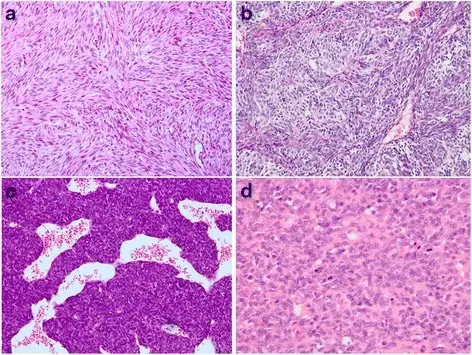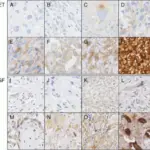Synovial sarcoma is a malignant soft tissue tumor of uncertain histogenesis with variable epithelial differentiation. Synovial sarcoma has a characteristic chromosomal translocation of t(X;18), SS18-SSX1, -SSX2, -SSX4.
What is the Pathology of Synovial Sarcoma?
The pathology of synovial sarcoma is:
-Etiology: The cause of synovial sarcoma is poorly understood, however, genetic is considered one of the factors.
-Genes involved: SS18, SSX1, SSX2, SSX4.
-Pathogenesis: The sequence of events that lead to synovial sarcoma is driven by the chromosomal translocation t(X;18)(p11;q11) involving genes SS18 and either SSX1, SSX2 or SSX4.
-Morphology: The morphology associated with synovial sarcoma shows monophasic spindle cell, biphasic, poorly differentiated, myxoid, ossifying, and monophasic epithelial like.
-Histology: The histology associated with synovial sarcoma shows the glandular formation of epithelioid tumor cells with sparse luminal microvilli.
How does Synovial Sarcoma Present?
Patients with synovial sarcoma typically affect males of no specific age group. The symptoms, features, and clinical findings associated with synovial sarcoma include no noticeable signs and symptoms.
How is Synovial Sarcoma Diagnosed?
Synovial sarcoma is diagnosed using biopsy and molecular or cytogenetic testing for SS18-SSX fusion.
How is Synovial Sarcoma Treated?
Synovial sarcoma is treated with surgery, radiotherapy, and adjuvant chemotherapy.
What is the Prognosis of Synovial Sarcoma?
The prognosis of synovial sarcoma is fair with survival rates of 50-60% at 5 years and 40-50% at 10 years.



